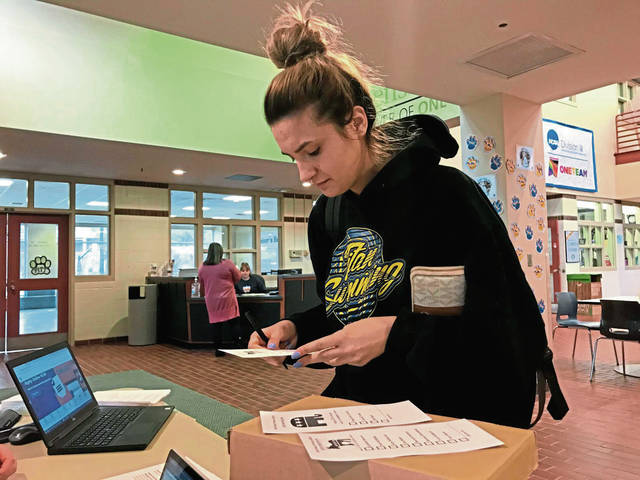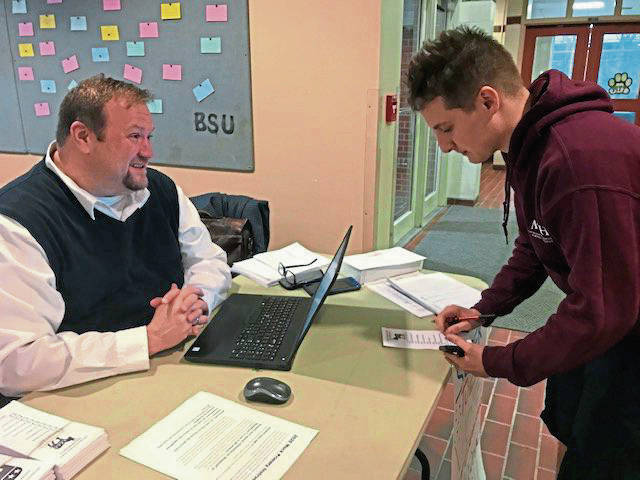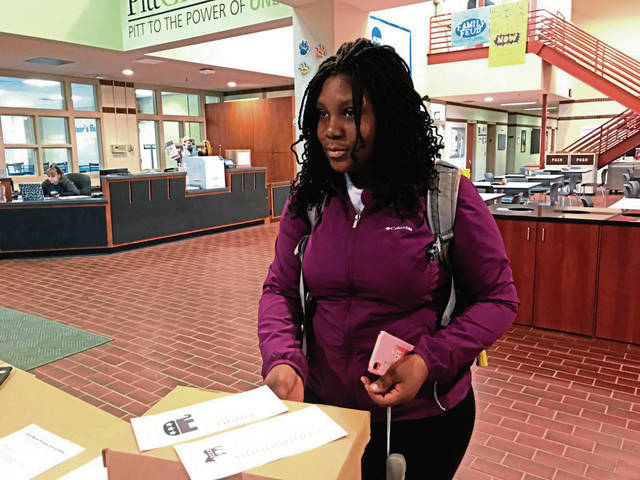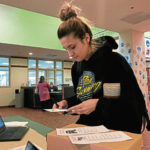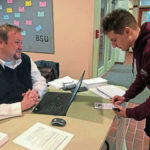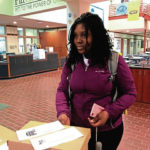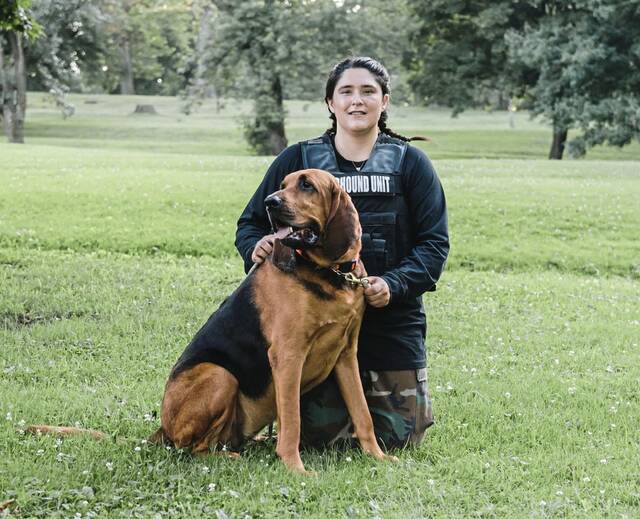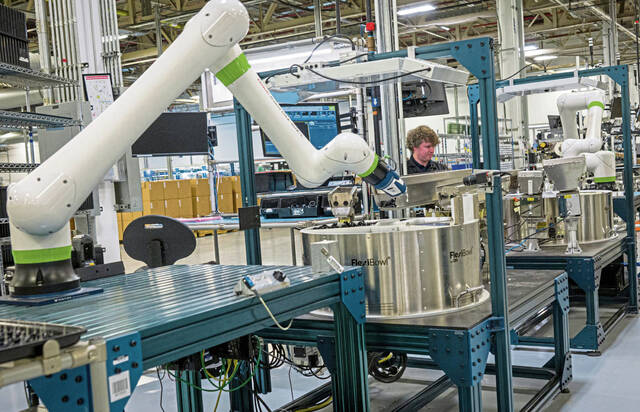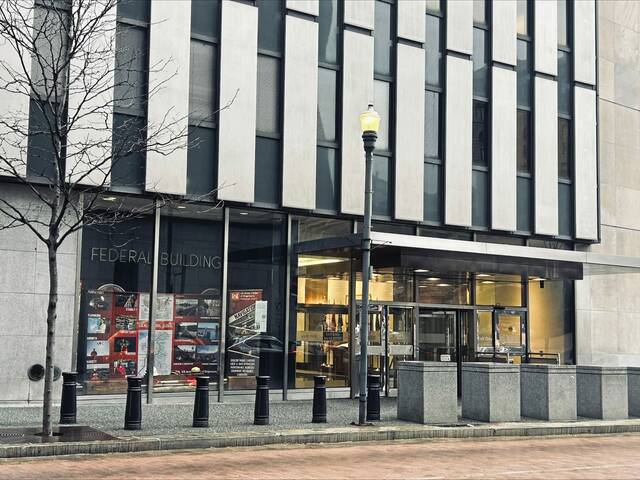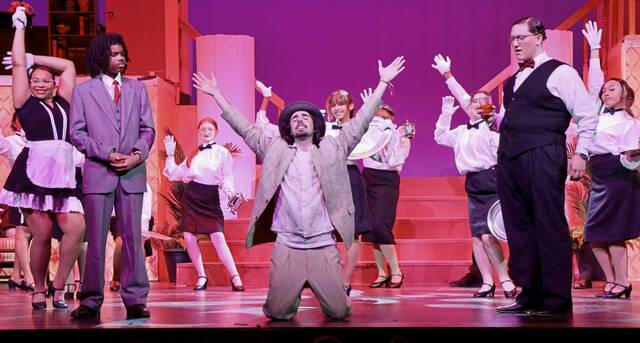As voters in 14 states streamed to the polls Tuesday for the nation’s biggest single-day contest in the 2020 presidential primaries, Katherine Hope tried to drum up enthusiasm among rain-drenched students at the University of Pittsburgh at Greensburg.
Pennsylvania’s April 28 presidential primary may be nearly two months away, but Super Tuesday is a tradition at Pitt-Greensburg — where students began holding mock primaries 12 years ago.
Tuesday, they handed President Trump a landslide victory with 38 of 40 young Republicans voting to give Trump — who faced only former Massachusetts Gov. William Weld and perennial candidate Roch DeLaFuente — a shot at a second term.
Their counterparts among young Democrats on campus gave Sen. Bernie Sanders 35 of 58 votes cast. Former Vice President Joe Biden and Sen. Elizabeth Warren tied for second with eight votes each, while Pete Buttigieg pulled five votes to Michael Bloomberg’s two.
Back where votes carried the clout of convention delegates, reports from primary states Tuesday suggested many voters were stunned to find the names of former South Bend, Ind., Mayor Pete Buttigieg and Minnesota’s U.S. Sen. Amy Klobuchar still on the ballot after their last-minute withdrawals. Also remaining on the ballot was billionaire former hedge-fund executive Tom Steyer, who dropped out of the Democratic race Saturday after getting disappointing results in the South Carolina primary.
Pitt-Greensburg students had Hope, who is a junior political science major, and political science professor Paul Adams to lead them through any confusion.
“This is what the primary ballot will look like here,” Adams said, pointing to a printed ballot that listed Elizabeth Warren, Pete Buttigieg, Amy Klobuchar, Joe Biden, Bernie Sanders, Michael Bloomberg, Tulsi Gabbard and Tom Steyer, in that order.
While the mock primary was an exercise in voter education, the stakes in Super Tuesday states were high: 1,357 Democratic delegates, or about a third of the total who will select the party’s nominee at this summer’s convention.
Although Sanders went into the race with an edge in the delegate count, party insiders rallied behind Biden across the primary states after his win in South Carolina and endorsements from Buttigieg and Klobuchar.
Sanders, the self-proclaimed Democratic Socialist, made his mark with Medicare for All and free public college. He has long been popular with young voters, and Adams said he wasn’t surprised when Sanders dominated college balloting.
“That’s what happened four years ago,” Adams said.
Hope said many of her friends are drawn to Sanders by his promise of free college and health care for all.
For them, this is personal, Hope said. She recounted a recent conversation with a friend who had aged out of her parents’ health insurance. Then she became ill and had to go to the hospital.
“Now, she’ll have to pay out of pocket,” Hope said.
With Generation Z — those born after 1996 — now making up about 9% of the U.S. electorate, voters such as Hope and her friends this year could have a significant impact in a close presidential race. Coupled with millennials, those born between 1981 and 1996, they account for 36% of the electorate.
Students at the event also registered several classmates to vote online. Adams said that has been an important component of the work students do on campus, which enrolls about 1,430 residential and commuter students. Over the past decade, they’ve registered about 600 fellow students.
Jared Hoffman, 22, a senior communications major from Scenery Hill in Washington County, is among a small number of students who will cast their second presidential ballot this year. He voted for Hillary Clinton in 2016. He cast a mock ballot for Warren on Tuesday.
“I watched the debates. I’ve been looking at all of the candidates. Health care reform is important, but I’m very concerned about the cost of higher education. I think we need to find a way to make it affordable,” he said. “I work in a restaurant, and I see a lot of people whose parents can’t sign their loans, and they’re stuck in places no one should have to work.”
As a woman and a minority, Zakiya Steave-Onyndo, 19, of Monroeville said she’s concerned about many problems, including abortion and immigration.
“I feel a woman should have control over her own body. And I came from a family of immigrants. My grandfather is from Kenya, my grandmother is from the Bahamas. I feel like everyone should have the opportunity they had to come to America. This is a melting pot,” the Pitt-Greensburg freshman said, slipping her ballot into the cardboard box.


